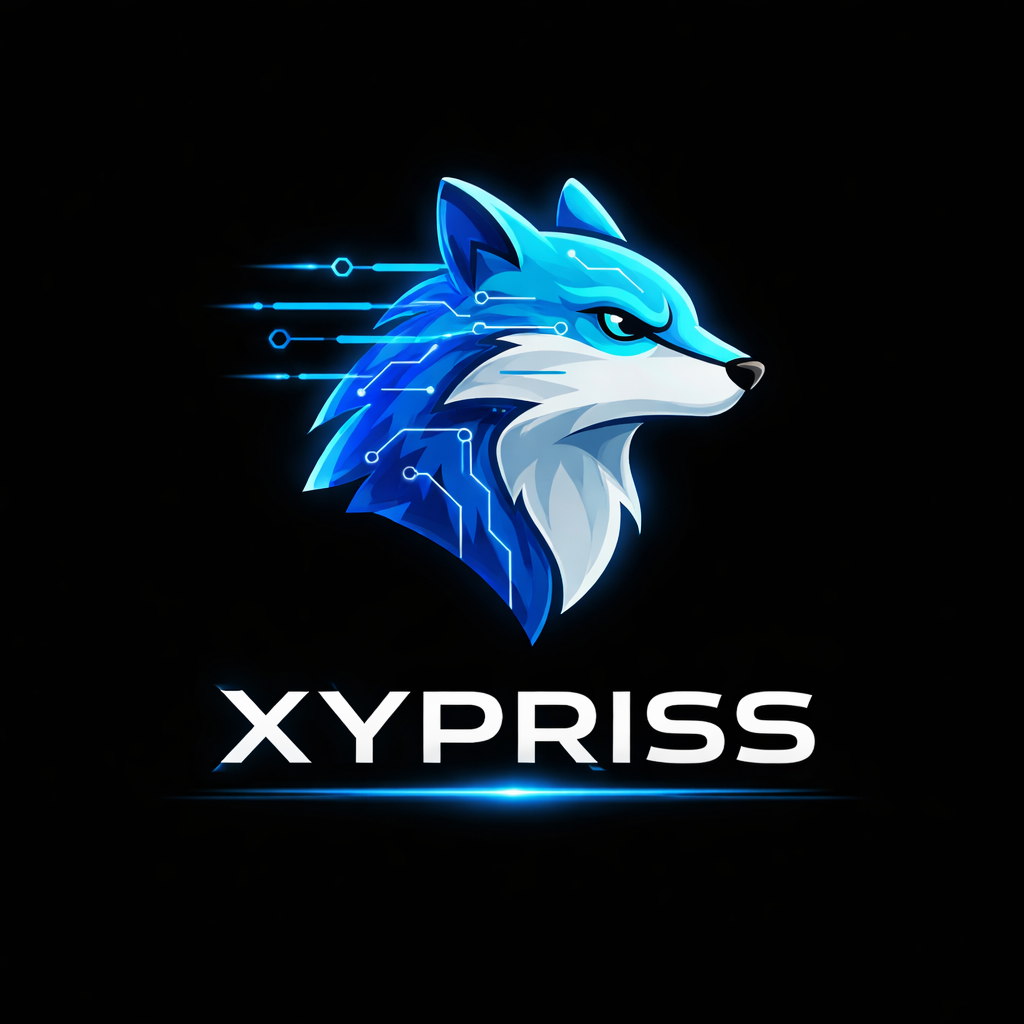Package Exports
- xypriss
- xypriss/package.json
Readme
Beta Version
Overview
XyPriss is a Hybrid Enterprise-Grade Web Framework that bridges the power of Rust with the flexibility of TypeScript.
Cross-Platform Foundation
At its core, XyPriss is engineered for universal high-performance. We provide native Rust binaries (XFPM & XHSC) for:
| OS | Architecture | Status |
|---|---|---|
| Linux | x86_64 (AMD64) | ✅ Supported |
| Linux | aarch64 (ARM64) | ✅ Supported |
| Windows | x86_64 (AMD64) | ✅ Supported |
| Windows | aarch64 (ARM64) | ✅ Supported |
| macOS | x86_64 (Intel) | 🛠️ Source-only* |
| macOS | aarch64 (Apple Silicon) | 🛠️ Source-only* |
We are committed to future-proofing our engine for emerging architectures like RISC-V.
At its heart lies XHSC (XyPriss Hybrid Server Core), a high-performance Rust engine that handles low-level networking, advanced routing, and system telemetry. This unique hybrid architecture allows developers to build secure, scalable applications using TypeScript while benefiting from Rust's raw performance and multi-core efficiency.
Architecture & Tools
XyPriss operates on a unified strategy:
- XHSC (Rust Engine): Manages the HTTP/S stack, ultra-fast radix routing, and real-time hardware monitoring. It acts as the high-speed gateway for all incoming traffic.
- Node.js Runtime: Provides the enterprise-ready application layer where developers manage business logic, security middlewares, and data processing using TypeScript.
- XFPM (XyPriss Fast Package Manager): Our ultra-fast, Rust-powered developer tool. We highly recommend using
xfpmfor all operations. It provides optimized resolution, ultra-fast extraction, and caching tailored for the XyPriss ecosystem. Learn more about XFPM.
Core Features
- High Performance XHSC Engine - Independent Rust server core implementation with multi-core clustering support and high-precision system telemetry.
- Security-First Architecture - 12+ built-in security middleware modules including CSRF protection, XSS prevention, and intelligent rate limiting.
- Advanced Radix Routing - Ultra-fast routing system powered by Rust, capable of handling complex path matching with microsecond latency.
- File Upload Management - Production-ready multipart/form-data handling with automatic validation and error handling.
- Extensible Plugin System - Permission-based plugin architecture with lifecycle hooks and security controls.
- Native Production Integration - Built for automated deployments and SSL management via XyNginC.
- Multi-Server Support - Run multiple server instances with isolated configurations and security policies.
We strongly recommend using the XyPriss CLI (xyp) for the fastest and most reliable developer experience.
Refer to the Installation Guide for detailed platform-specific instructions.
Quick Install (Unix)
curl -sL https://xypriss.nehonix.com/install.js | nodeOnce installed, you can manage your project dependencies with ultra-high performance:
# Install XyPriss in your project
xyp install xyprissAlternatively, using standard package managers:
xfpm i xypriss
# or
yarn add xyprissFor additional security features:
xfpm install xypriss-securityQuick Start
Using CLI
xfpm init
cd my-app
xfpm dev # or xyp dev (both are the same)Manual Setup
import { createServer } from "xypriss";
const app = createServer({
server: { port: 3000 },
security: { enabled: true },
});
app.get("/", (req, res) => {
res.json({ message: "Hello from XyPriss" });
});
app.start();Documentation
Getting Started
- Quick Start Guide - Installation and basic setup
- XFPM Guide - Using the XyPriss Fast Package Manager
- Examples - Practical code examples
- Features Overview - Comprehensive feature list
Core Guides
- Routing - Route configuration and middleware
- Security - Security features and best practices
- File Upload - File upload handling
- Configuration - Complete configuration reference
- Multi-Server - Multi-server deployment
Plugin System
- Plugin Development - Creating plugins
- Plugin Hooks - Available lifecycle hooks
- Plugin Permissions - Security and permissions
- Console Intercept Hook - Console monitoring
Advanced Topics
- XJson API - Advanced JSON serialization
- Clustering - Multi-worker scaling
- Performance Tuning - Optimization strategies
Security
XyPriss is built with security as a fundamental design principle. The framework implements multiple layers of protection and follows industry best practices for secure web application development.
Security Disclosure Policy
While we maintain rigorous security standards, we acknowledge that vulnerabilities may exist. We encourage responsible disclosure of security issues.
If you discover a security vulnerability, please report it via email:
Email: support@team.nehonix.com
Please do not open public GitHub issues for security vulnerabilities.
We are committed to:
- Acknowledging receipt of your report within 48 hours
- Providing regular updates on our progress
- Crediting researchers who responsibly disclose vulnerabilities
Your assistance in maintaining the security of XyPriss is greatly appreciated.
Contributing
XyPriss is an open-source project that welcomes contributions from the community. We value all forms of contribution, from bug reports to documentation improvements.
How to Contribute
- Star the Repository - Show your support and help others discover XyPriss
- Report Issues - Submit bug reports with detailed reproduction steps
- Suggest Features - Open discussions for feature proposals
- Submit Pull Requests - Review our Contributing Guide before submitting code
- Improve Documentation - Help us maintain clear and accurate documentation
Contribution Guidelines
- Follow the existing code style and conventions
- Include tests for new features
- Update documentation as needed
- Ensure all tests pass before submitting
- Write clear commit messages
Read the Complete Contributing Guide
Community Support
Resources
- Documentation - Complete guides and API reference
- GitHub Discussions - Community Q&A and feature discussions
- Issue Tracker - Bug reports and feature requests
- Security - Report vulnerabilities
- Website - Learn more about Nehonix
Support the Project
If XyPriss has been valuable for your projects, consider:
- Starring the repository on GitHub
- Sharing the project with your network
- Contributing to the codebase or documentation
- Providing feedback and suggestions
- Giving us a star on GitHub
License
XyPriss is licensed under the NOSL License.





